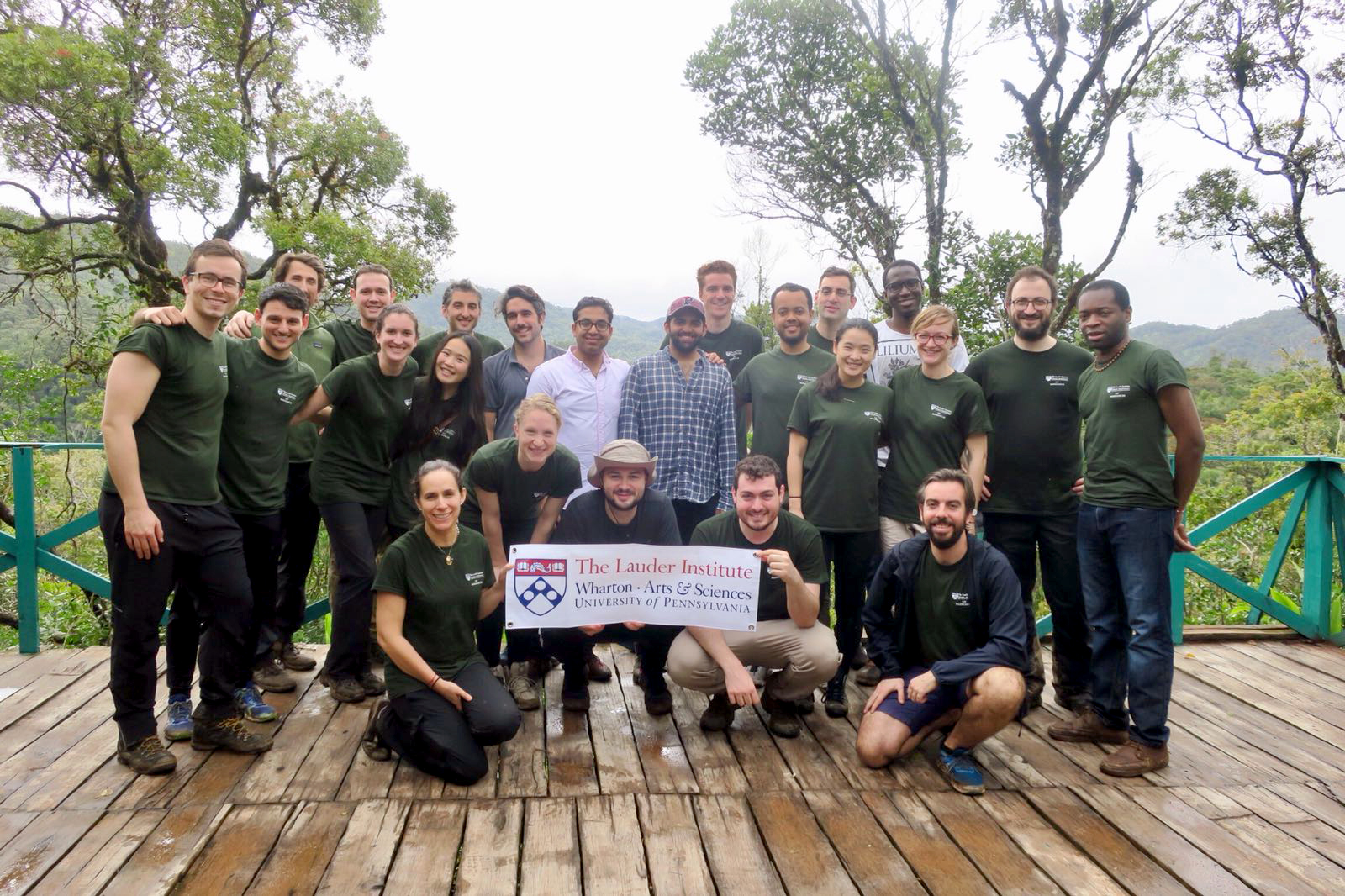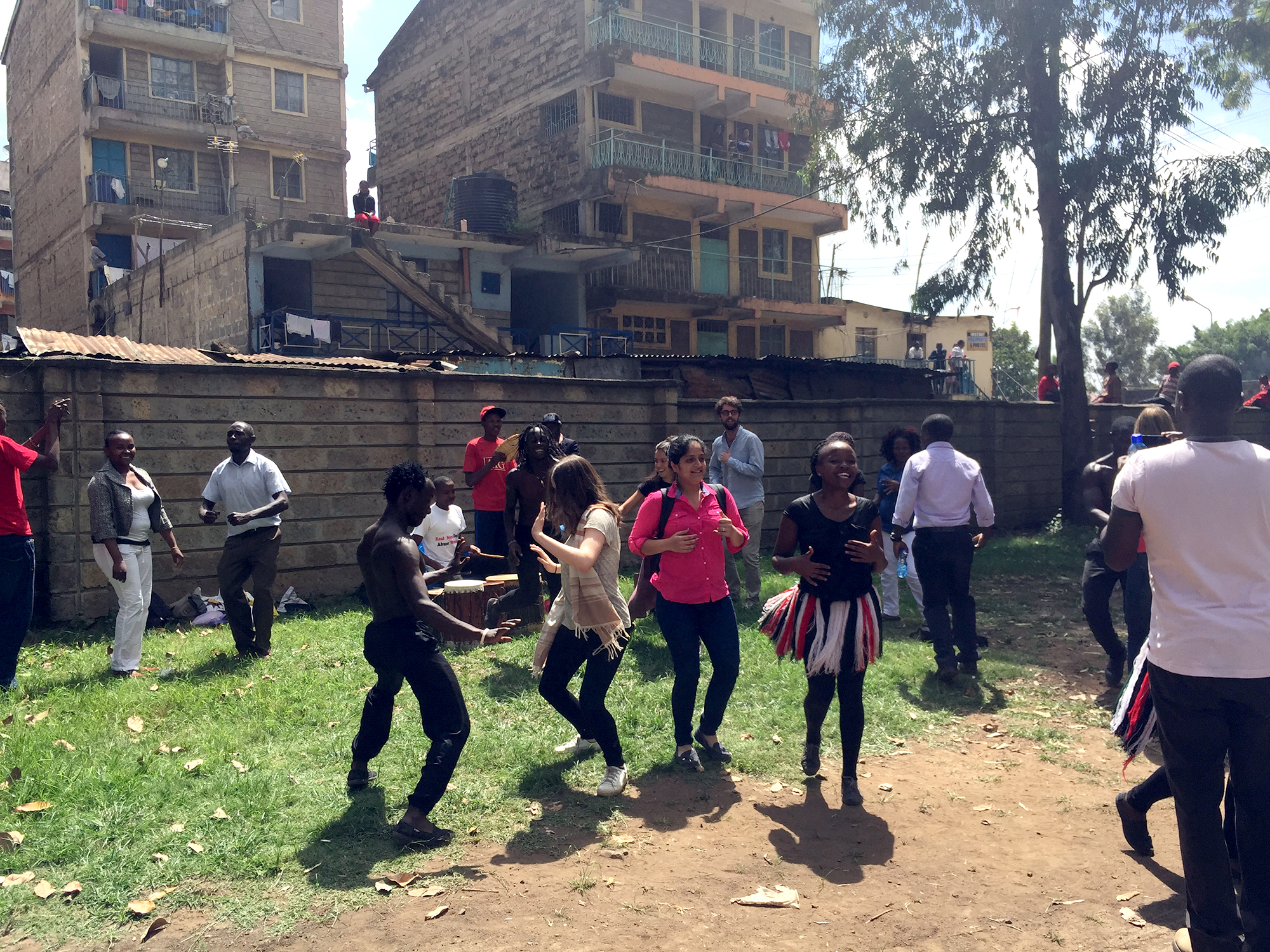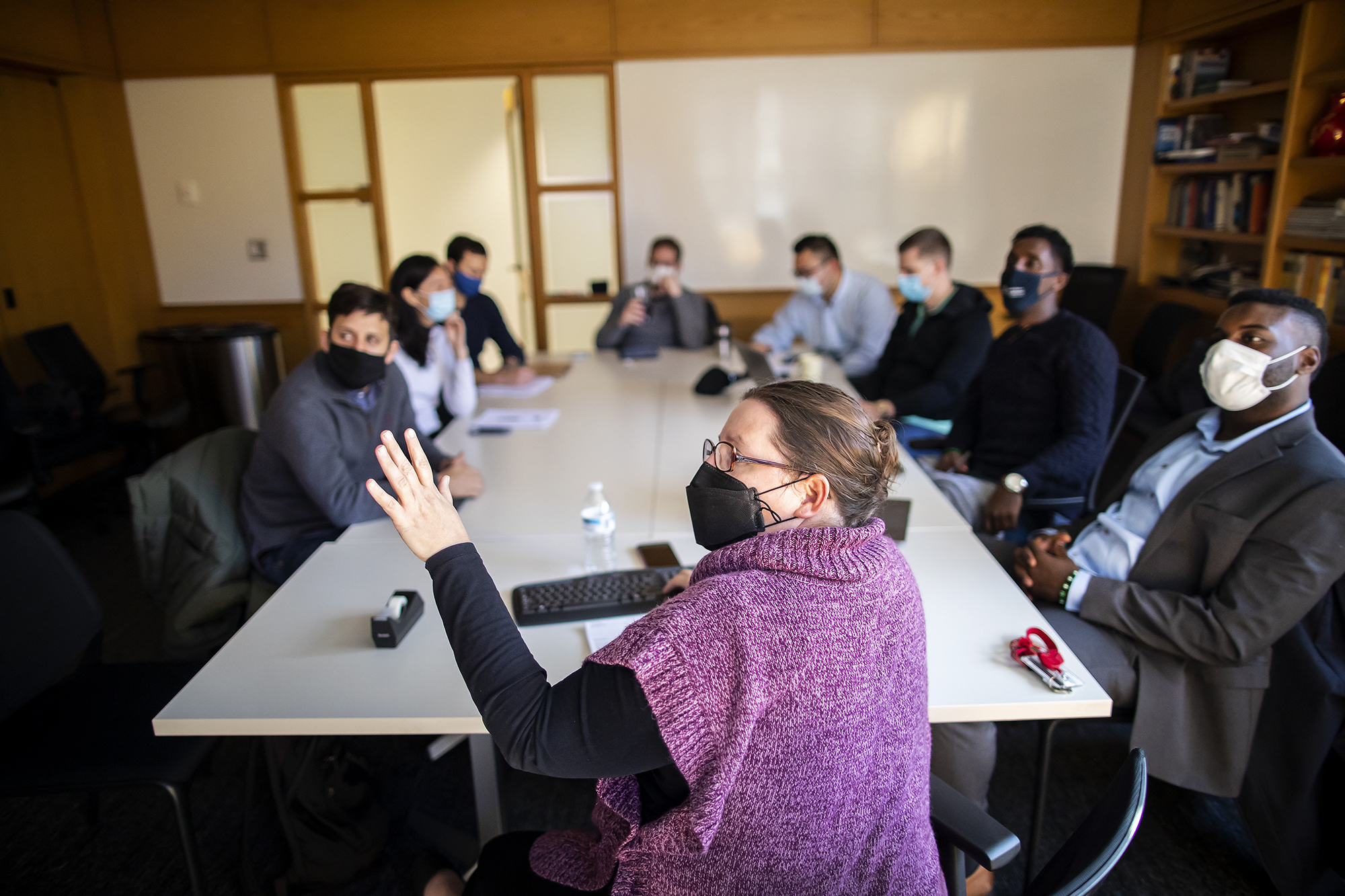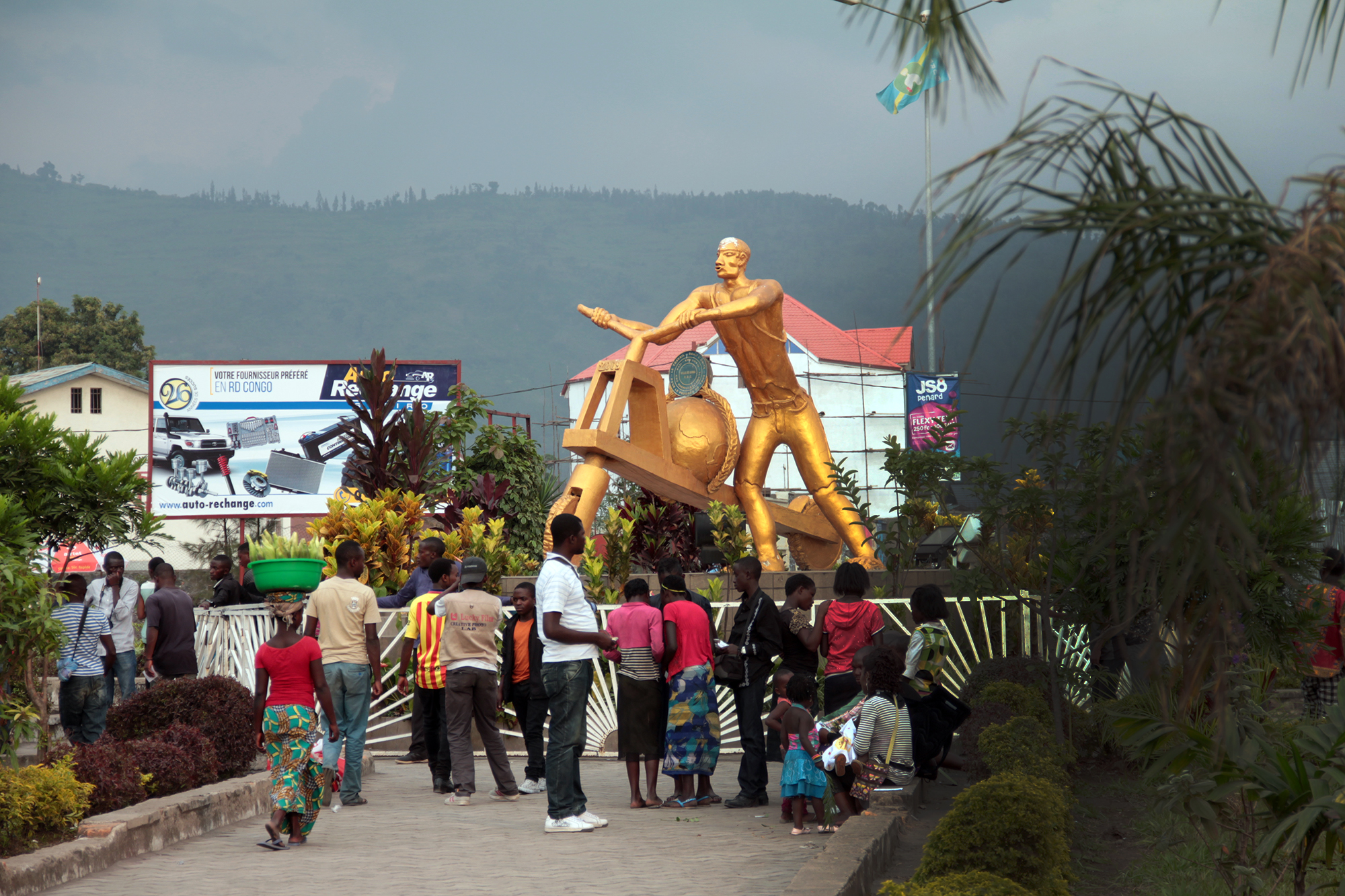
While attending a career fair in Johannesburg, South Africa, Sebastian Read scanned the tables and caught sight of Penn’s.
“Where’s the Wharton table?” he asked the recruiter, approaching her.
“This is the Wharton table,” she responded.
“But it says, ‘Lauder Program,’” he countered, confused.
This is where his Lauder journey began. Here, he learned about the Lauder Institute of Management & International Studies, Penn’s program that marries the MBA in the Wharton School with an MBA in International Studies, plus a strong language component. He began to reflect on the cross-border deals he’d already been making at Barclays in South Africa, and, aware of the “Africa rising” narrative that’s reached popular consciousness in the business world since The Economist reported on it in 2011, he was intrigued.
“She told me all about [Lauder’s program] and it made a lot of sense in today’s world,” Read recalls.
He’s now a first-year MBA candidate in the Lauder Institute’s Africa Program, which is in its fifth year and includes 30 students; 24 students have graduated the program, in total. The Africa Program, which had its beginnings in a 2015 immersion trip to Senegal and Morocco, was the last to be added to Lauder’s array of five other regional Programs of Concentration: East and Southeast Asia, Europe, Latin America, South Asia, the Middle East and North Africa, and the Global Program.
But while it’s one of six programs at Lauder, it’s the only program of its kind among MBA programs.
“Lauder’s Africa program is unique among business schools because it provides students with an integrated, in-depth, multi-disciplinary, multi-course program of study that includes historical, cultural, and political perspectives on Africa, at the same time as they are taking their standard MBA courses,” explains Martine Haas, The Lauder Chair Professor and Professor of Management at the Wharton School, and Director of the Lauder Institute. “This allows them to develop deep contextual knowledge and understanding of the region at the same time as building their widely applicable business skills. In contrast, MBA programs typically offer perhaps a handful of case study discussions on Africa, or occasionally, one course focused on Africa business.”
Lauder students also, uniquely, embark on immersion trips, which differ depending on whether they enroll in the Africa French or Africa General tracks—the former focusing on French language advancement, and the latter emphasizing cross-border dynamics and cultures in Africa more broadly. During the trips, they are immersed in the daily challenges of life in those countries (Africa French students stay for as long as five weeks), engage in seminars, and are confronted with the language-switching that tends to happen in multilingual societies.
Read is an Africa General student who speaks fluent Afrikaans, one of 11 national languages in South Africa. Because South Africa, he says, feels removed from other parts of the continent, he felt the program was a good way to be exposed to other regions—plus, a way to meet other internationally minded business leaders.
“The whole ‘Lauder love’ thing makes a difference, and I can’t overstate that enough,” Read says. “It’s a community within a community, and a great way to build a network.”
A chance to ‘smash the paradigms’
Lynsey Farrell, a senior lecturer in Anthropology and director of the Africa Program, says there are typically three kinds of students she sees in the program: ones who are from Africa, are early in their career, and want to go back and make an impact; ones who are from the Global South, more generally, and want to apply lessons from Africa to their own cultures; and others who are interested in social impact or market-based solutions as a tool for making change. Some are interested in untangling knots in the supply chain, and others are interested in social or environmental outcomes.
“But we start with a deep dive into culture,” Farrell says.
Topics of that deep dive: social norms and theories, plus, understanding local-level systems and structures, political systems, and economic systems. These are baselines for understanding any culture, but specifically Africa’s, whose systems tend to vary greatly by country.
Part of this effort is to, as Farrell says, “smash the paradigms” and unpack common misconceptions while calling attention to modern on-the-ground challenges. This starts in her course, Paradigms and Paradoxes of Africa, part of the Africa General track.
“In that class the intention is, in a very interdisciplinary way, to get students to understand the roots and origins of why we think the way we do about Africa, and why Africans think the way they do about themselves,” Farrell says. “So, there’s a unit on decolonization and political paradigms, on the cost of repression and reform, development paradigms, paradigms of progress, and at each stage, teasing out what these paradigms are.”
Ginny Maceda is a first-year student in the Africa French track. She’s interested in agriculture and sustainability and livelihoods, hoping to improve business models so that they are not only profitable for companies, but also generate positive social and environmental impact, particularly in emerging markets like Sub-Saharan Africa. In a past job, she spent six months on sabbatical in Ethiopia, learning about the business of agriculture, and talking with farmers and manufacturing companies.
“I knew I wanted to go to business school, because I wanted to shift from consulting to operations. Instead of advising global food and beverage companies like Nespresso, I wanted to work for them,” Maceda says. “But I didn’t want to just focus on the ‘hard’ business skills—I also wanted to explore social sciences, because of my career interests and academic background. With Lauder, I could do that—with a focus on Africa that’s related to many of my work interests.”
As a language learner, too, she says her perspective is much more nuanced after reading, in French, texts from West African authors, who talk about the challenges of teaching French given its colonial legacies. She’s also learned more about how and when countries like Senegal achieved independence and the ripple effects involved.
“I think it’s really important to think about the local context you’re operating in, particularly if you want to be an international business leader, which is something I aspire to be,” she says. “It helps me if I’m going to go to different contexts to know—even if I don’t know right away—to have it in the back of my head, ‘How can I show up better? How can I build more relationships and make business decisions in a local context?’ Which I don’t think we always discuss in non-Lauder classes.”
Understanding different mindsets
Mili Lozada, director of language and culture programs at the Lauder Institute, explains that Africa French students typically spend about five weeks living in Senegal, attending advanced language courses, cultural activities, and organizational visits, in collaboration with the University Cheikh Anta DIOP. The idea is to demonstrate the how cultural contexts shape economic and business practices.
“For me, it’s a very unique opportunity we’re giving to students from linguistics and cultural perspectives, and [there are] also other opportunities and lessons you can get from countries in Africa,” says Lozada. “Being an outsider, it’s sometimes difficult to understand but that’s the beauty of this program. It’s not students trying to bring solutions to the country; it’s how you can learn from these countries and understand different mindsets—different ways to do business. And that’s very unique, actually.”
Saphir Esmail, who is in his second year of the program, says he sought out the Lauder Institute because of his desire to do business in emerging markets. He’s from the Democratic Republic of the Congo and explains that he wants to eventually take his knowledge and bring it home. The goal with the Africa Program, for him, has been to understand how politics intertwines with business, so that he can return as a better global leader.
“It was the only program I saw where I could actually focus on Africa and be exposed to the African continent from an academic perspective,” Esmail emphasizes.
In the spring, approximately 30 students will participate in a Lauder Intercultural Venture in Dakar, Senegal, a one-week immersion trip focusing on Muslim Civil Society and Peace Making. There are also plans to host what has become an annual conference, the “Africa Futures Conference,” featuring interdisciplinary and multi-sectoral insights about Africa as an ever-changing continent. The theme for the 2022 edition will be “Prosperity and Progress in Africa,” hosted March 18 and 19 as a hybrid convening.










